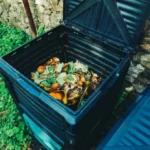Gardening enthusiasts know the joy of nurturing tomato plants, watching them grow and flourish. But there’s nothing more disheartening than waking up to discover that something has been feasting on your precious tomatoes overnight. In this article, we delve into the perplexing problem of “What Is Eating My Tomatoes at Night”? This unwelcome mystery often unfolds when the sun goes down, and it’s essential to solve it promptly to protect your tomato harvest. To tackle this issue, we first need to understand the signs of tomato damage and identify the common nighttime tomato predators responsible for the nibbling and theft.
Signs of Tomato Damage
Tomatoes, once vibrant and thriving, can quickly fall prey to unseen visitors during the night. The signs of tomato damage become apparent as you inspect your garden. You might notice holes in leaves, missing fruit, or even peculiar bites out of your tomatoes. Recognizing these signs early is crucial to take timely action and safeguard your tomato plants from further harm.
Common Nighttime Tomato Predators
As the sun sets and darkness descends, a different cast of characters emerges in the garden, each with an appetite for tomatoes. Common nighttime tomato predators include slugs, snails, rodents, and various insect species. These elusive creatures come out under the cover of darkness to savor the delights of your tomato crop. Each predator leaves behind its unique calling card in the form of feeding patterns and telltale evidence that can help you pinpoint the culprit responsible for your tomato woes. Understanding the behavior of these nighttime invaders is a key step in addressing the issue and protecting your tomato plants.
Identifying the Culprits
Identifying the exact perpetrators behind your nighttime tomato predicament can be a challenging task. To get to the bottom of the mystery, consider using a combination of techniques. Placing traps strategically in your garden can catch some of the culprits in action. Night vision cameras offer another powerful tool for surveillance, allowing you to monitor garden activity after dark. Additionally, don’t hesitate to inspect your garden during the nighttime hours. With a flashlight in hand, you may catch the intruders in the act. These methods, though they require patience and vigilance, can help you discover the specific pests responsible for the damage.
Prevention and Control Strategies
Once you’ve identified the culprits, it’s time to implement effective prevention and control strategies. Creating physical barriers around your tomato plants can deter many predators. Applying organic or chemical repellents, specifically designed for the identified pests, can help protect your tomatoes. Ensuring that your garden is well-maintained and free from hiding spots for critters can create a less appealing environment for tomato invaders. A combination of these strategies can help you keep your tomato plants safe from nighttime threats.
Conclusion
Nighttime tomato damage can be frustrating, but with a keen eye and the right strategies, you can overcome the challenge. Early detection, identification, and proactive measures are your allies in protecting your precious tomato harvest. By staying vigilant and addressing the issue promptly, you can ensure that your tomatoes thrive and flourish, free from the nocturnal invaders that once threatened their growth. So, as you tend to your garden, rest assured that with the knowledge and tools at your disposal, your tomatoes will have a better chance of staying safe from those mysterious midnight marauders.



